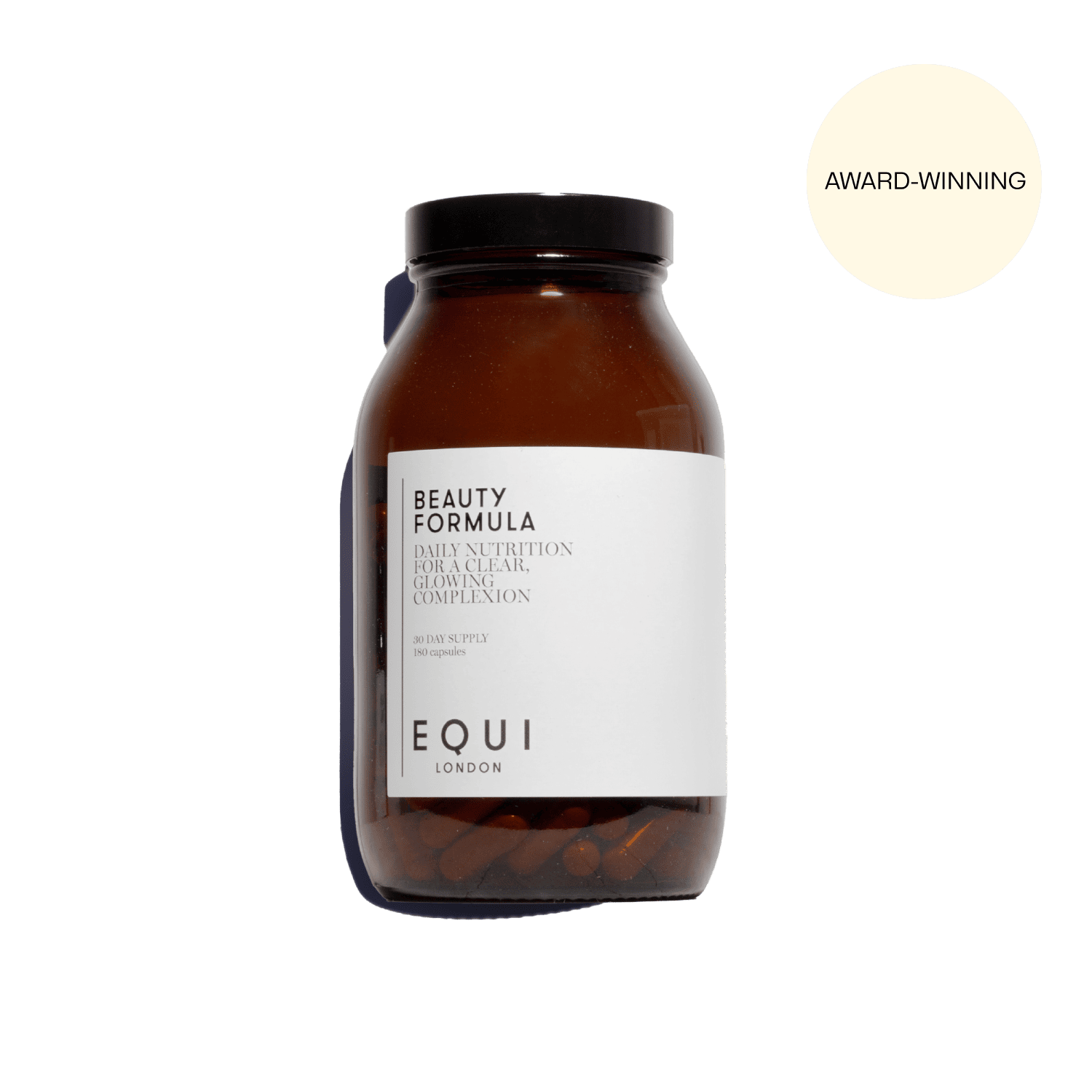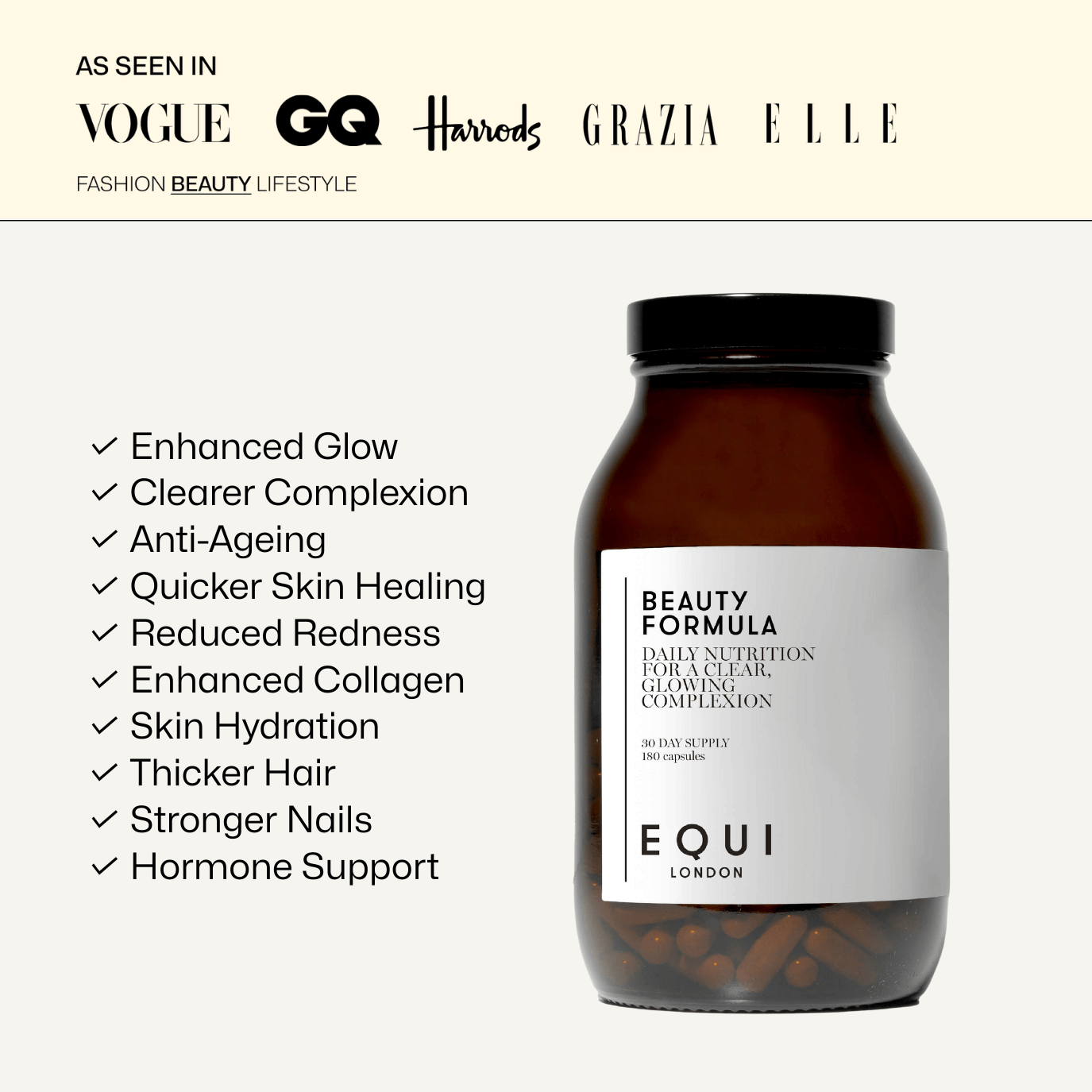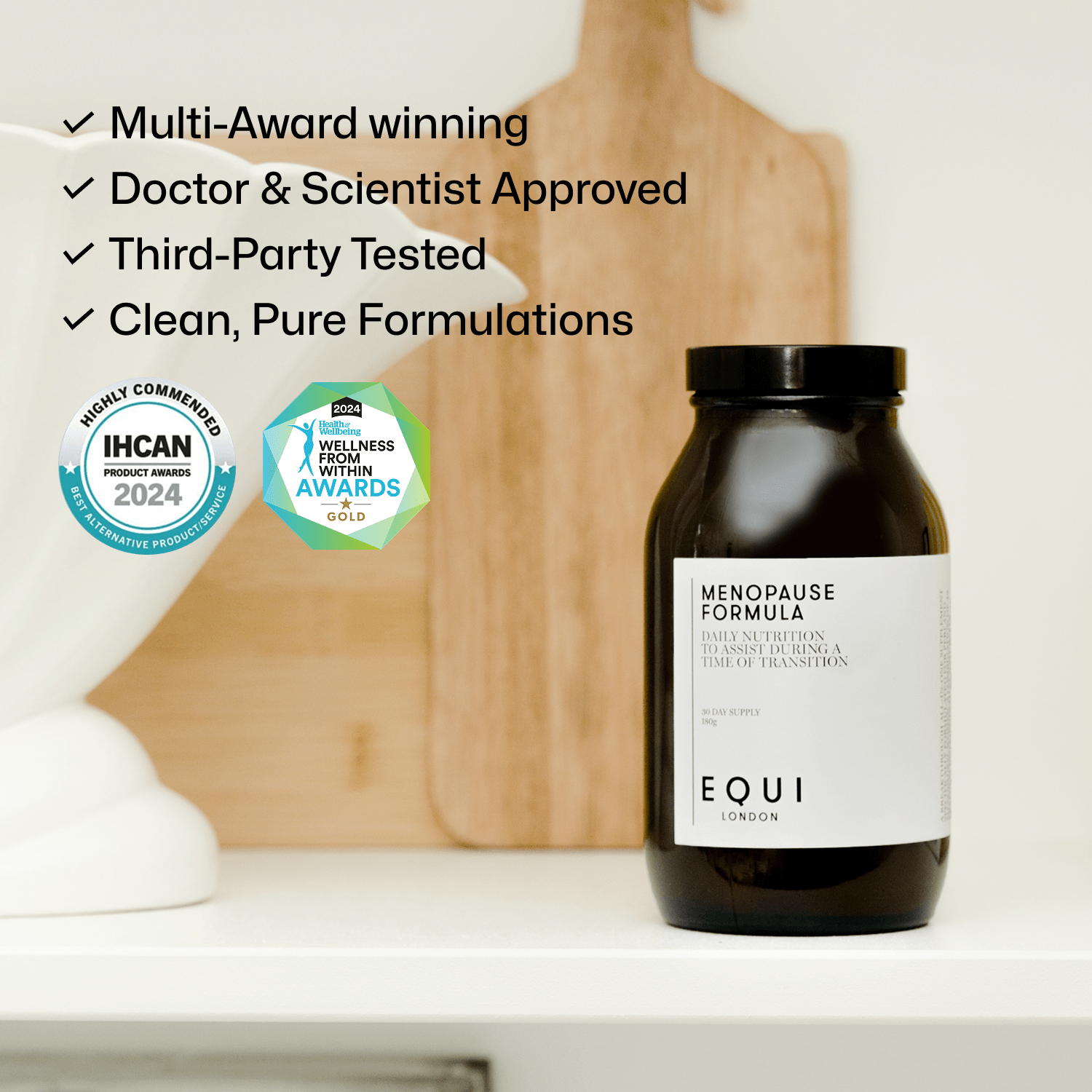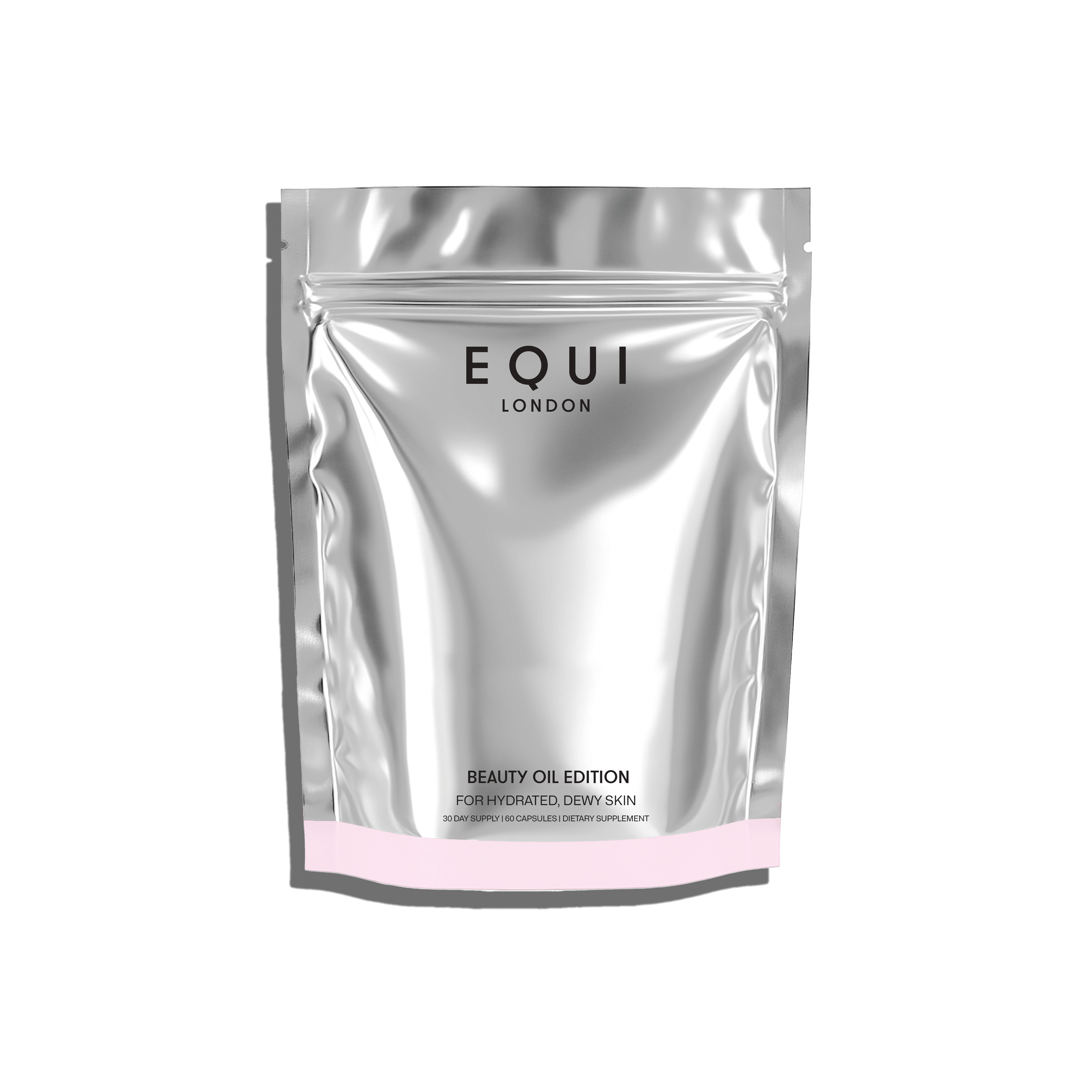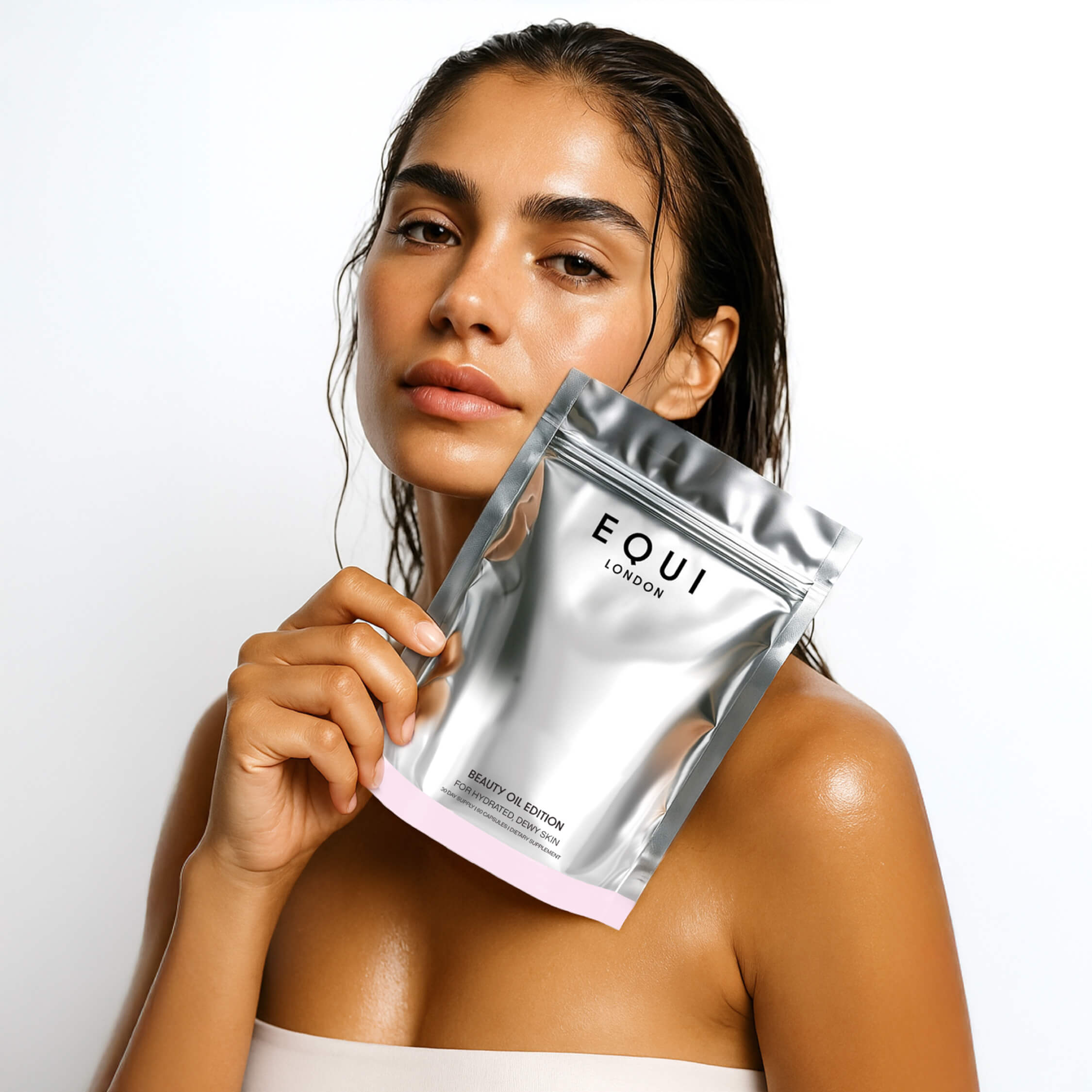
Alice Mackintosh is one of our founders, a Nutritional Therapist and a published bestselling author, but did we mention she is also Deliciously Ella's Nutritionist?
Alice has worked with Ella for many years, helping to support her wellbeing, but recently the Deliciously Ella team brought her on for some a new meal plan project on their popular recipe app. She also did three podcasts with Ella - bitesized 15 minute episodes about Eating for Energy, Supporting your Mood and Ways to Improve Your Gut Health.
Last week Ella invited Alice on to her Instagram for a Live Q&A - where followers asked Alice their burning nutrition-related questions. We wanted to share these questions with you this week on the blog. They cover everything from intermittent fasting, ways to lose weight sustainably, combatting cravings, getting enough iron and eating for better skin.
Read on for Alice's tips!
How can I lose weight in a healthy way?
The best way to reach your ideal weight is to make long term, consistent & positive changes to your diet, as well as staying active. Some tips:
- Try to avoid calorie counting-different foods behave differently in the body and it’s more complex than calories in/calories out.
- Instead make sure your meals aren't just made up of carbs-get a nice mix of protein & fats on the plate. E.g porridge & fruit is nutritious & fibre rich, but missing protein & fat-try adding in 2 tsps nut butter or a palmful of seeds.
- Colourful veggies are lower in sugar, nutritious & full of fibre - they help fill you up but don't spike blood sugar so make sure they always feature on your plate.
- Avoid grazing - it disturbs blood sugar & overall you end up eating more. Aim for 3 balanced meals & only snack if you really need to.
- Before diving into the cookie jar ask yourself if you’re really hungry or if you're bored, tired or looking to fill a hole emotionally.
- Depriving yourself can lead to yo-yo dieting. I encourage my clients to find balance with 80% nutritious foods, 20% what you fancy - it’s more fun, realistic & keeps you in it for the long haul!
I love being plant based but have a hard time staying full – any tips?
Totally get this! The best way to stay full is by making sure all your meals contain a good balance of fibre, protein & healthy fats - this mix breaks down slowly in the gut, keeps your blood sugar stable and appetite satisfied for hours.
- Good sources of plant based protein are lentils, beans, nuts, tofu, peas, edamame, tempeh, grains (quinoa/brown rice) or protein powder.
- Healthy fats - avocado, hempseed, flax, olive oil or coconut yoghurt.
Intermittent fasting – yes or no, what are drawbacks and benefits?
There is research showing pros and cons to fasting - pro’s being reduced inflammation, improved gut health, reduced risk of diabetes/obesity with possible benefits to long-term brain health. Con’s being changes to mood (e.g. anxiety), heartburn, hormonal strife and hair loss in some people.
Ultimately it depends on the person (it’s often not suitable if you’re stressed or anxious) and it’s important to get some advice from a GP or qualified health expert, especially if you have health conditions.
One thing that is safe and supportive for most people is leaving 12 hours overnight without eating which gives the gut a break and allows the body to do important 'housekeeping'.
How can I avoid sugar cravings?
I always tell my clients to get the day off on the right foot with a balanced breakfast. This prevents spikes in blood sugar that can crash later on.
- Don't start the day off with caffeine - dehydration is one of the most common causes of low energy/poor focus. Hydrate first and then have your coffee/tea with breakfast.
- Make sure you choose whole grains such as oats, no added sugar muesli or wholegrain toast (watch out for sugary breakfasts cereals, breakfast bars pastries or white bread)
- Add in your protein (tofu scramble, flaxseed, chia, nut butter or protein powder)
- Try adding cinnamon into smoothies, pancakes, porridge or even tea - it has been shown to keep blood sugar more stable
- If you feel a 4pm slump coming on, try getting a few minutes of fresh air & hydrate. If you need a snack try hummus & crudités, a palmful of nuts, a date with 1 tsp nut butter or an oat/nut based snack bar.
- Chromium is really fantastic for blood sugar regulation and can help massively with sugar cravings. We add this into our Lean Formula for that exact reason - along with glucomannan, cinnamon, kelp and green coffee bean extract, it really helps with weight managment whilst energising and supporting the thyroid.
The best ways to improve gut health
Focus on eating at meal times (not your screen!) & make sure you chew food-so simple but so important.
- Fibre is key-we need 30g/day but many of us only get half of that. Science shows that eating 30 different types of plant based foods/week helps support our microbiome. Whole grains, beans/lentils, veggies, fruit, nuts/seeds, herbs & spices all count.
- If you're new to fibre or have gut issues then introduce plants slowly to allow your gut to adapt.
- Avoid grazing - it stops the gut from properly digesting. Try finishing dinner by 8pm when possible.
- Add fermented foods like kimchi, sauerkraut into salads, sandwiches & try kefir or probiotic yoghurt.
We did a 15 min podcast about all this - click here to listen
How much protein do you need?
The average female adult needs around 45g-55g protein/day. If you're very active or pregnant/breastfeeding you may need more.
You can work out what you need by taking your weight in KG & multiplying by 0.8 (or weight in pounds x 0.36) which gives you the rough number of grams you need daily. All our meal plans contain minimum 50g protein per day.
An example would be:
- 50g Porridge with 1tbsp hempseeds & peanut butter
- Colourful salad with 25g toasted almonds & 170g chickpeas
- 1tbsp almond butter & seeded crackers
- 5 Bean Chilli with 140g brown rice
= approx. 58g protein
Bloating on a plant-based diet - what can I do about it?
If you're new to plant based eating then chances are you’ve increased your fibre. The gut needs time to adjust & produce more enzymes to break plants down. Make sure you introduce fibre slowly - e.g month 1 might be switching white carbs to whole grains & trying 2 extra veggies/day. Month 2 could be adding in a palmful of beans each day & some nuts into a bircher muesli (soaking helps you digest better).
If you’ve been struggling for a while or have long-term digestive concerns then get some help from your GP.
Good plant-based sources of calcium
There are loads! Adults need around 700mg calcium/day (increases to 1200mg if 50+).
Sources of plant-based calcium include cabbage, kale, bok choi, okra, broccoli, cauliflower (basically any veg with a thick stem) sesame seeds/tahini, fortified plant-based milk (be sure to shake as calcium sinks to the bottom) almonds, peanut butter, edamame, tofu, flaxseeds, lentils, dried figs & prunes.
A daily example of 700mg:
2 TBSP tahini, 4 TBSP cooked kale, 2 dried figs, 200ml fortified milk, 75g tofu, 1 handful edamame, 2 TBSP hummus
Good plant-based sources of iron
Iron comes in two forms in our food: ‘haem’ from animal sources, and 'non-haem' from plant sources. We need to be conscious of eating regular sources each day to keep our levels where they should be.
This isn’t difficult & great sources of plant-based iron include: lentils, chickpeas, beans, tofu, quinoa, beetroot, dark chocolate, sesame seeds/tahini, pumpkin seeds, kale, flaxseed, dried apricots, dates, figs & raisins.
Note spinach isn’t actually the greatest source because it contains oxalate that hinder absorption!
Women need more iron than men (14g/day vs 9g/day). Aim for 4-5 sources a day and avoid caffeine right after you eat these as it can interfere with absorption.
Supplementing iron is also beneficial especially if you've tested low in iron or ferritin, but be sure to choose ferrous gluconate or ferrous bis-glycinate because these have better absorption rates and are softer on digestion - these are the forms we add to our Formula range.
Foods to improve skin
I love this one! Some foods to include:
- Walnuts & hempseed - rich in protein & omega 3 to hydrate & enhance glow
- Berries like pomegranate & blackberries - rich in anti-inflammatory antioxidants & vitamin C to build collagen
- Tahini & sunflower seeds - contain zinc to help help with spot prone skin
- Flaxseed - for our hormones & gut health - both vital for skin
- Fermented foods e.g. kimchi - contain pre & pro-biotics for gut & skin health
- Avocado - vitamin E & healthy fats to brighten & improve elasticity
- Tinned tomatoes - rich in lycopene to help fight sun damage
- Check your vitamin D levels - vital for skin & especially important in winter. We add 400iu of vitamin D into all Formulas (Pregnancy and Immunity Edition have 1000iu) as per the governments recommendations.
- Pine bark, resveratrol, glutathione, hyaluronic acid, zinc, silica and vitamin C are all excellet ingredients in supplements to help brighten the skin- all are found in our Beauty Formula.
Supporting mental health with diet?
Alice wrote a book about this called The Happy Kitchen
We did a whole podcast episode about this which you can listen to here!
Alice and Ella also filmed a video in support of the Mental Health Foundation charity all about eating for the brain. You can listen to this here .
Disclaimer: Certain supplements are used for different reasons and a one-size-fits-all approach shouldn’t be adopted. In addition, pregnant women and anyone on medication should always consult a doctor before embarking on a supplements programme. As with all articles on www.equilondon.com, this is no substitution for individual medical or nutritional advice.
